6 Signs That You're Not Getting Enough Vitamin D
Posted on 26 Oct 2016 by Julian House
Staggering research reveals that over half of the UK population are vitamin D deficient. This vital mineral is key to our body’s functions and a lack of it could lead to a number of illnesses.
This week is Vitamin D Awareness Week and it’s perfectly to coincide with the arrival of shorter days. The clocks go back on October 30th meaning an extra hour in bed, but shorter amounts of time in the sunlight. It’s rare that we get much sun in Britain as it is and that’s why it’s no surprise that over half of the population aren’t fulfilling their vitamin D needs.
It can be hard to tell whether you are vitamin D deficient and it often goes unnoticed, that’s why we list some of the signs. If you feel as though you may not be getting enough then use our Holland and Barratt promo codes or Just Vitamins discount codes for money off capsules and spray.
Attaining a high calcium intake can become redundant if other integral minerals aren’t accounted for, vitamin D included. Vitamin D is responsible for absorbing and regulating calcium and phosphorus- both responsible for strong bones. When we neglect our needs for sunshine or at least a supplemented version of vitamin D we can risk stress fractures, aching bones and weak bones. It’s important to get the right amount, so be sure not to take too much each day either.
This vitamin has been closely linked with our mood in a number of different research and case studies. Low levels of it have often shown depression and mood swings. Sufficient vitamin D enables our body to use the concentration of our serotonin hormone appropriately and subsequently brighten up our mood. So if you often feel in a rut and can’t quite work out why, then maybe you should see your local GP to test your levels.
The mineral is intertwined to much of our immune system and failing to get enough could impact our overall health. If you find yourself constantly getting ill with coughs, colds and the flu then your immune defences could be down. This could be a result of little vitamin D being immersed on a day-to-day basis.
Vitamin D is a fat soluble, so anybody that has gastrointestinal problems could struggle to absorb this element. Those who struggle with IBS, bloating or diarrhoea could be deficient.
Some groups are more prone to being deficient than others, with elderly and children often struggling to get enough of the important vitamin. Over a quarter of all children in the UK don’t get enough vitamin D. So, those over 70 should be aiming to supplement their vitamin D needs in Britain and also try to get out in the sun for five or ten minutes when possible. Those with darker skin are more susceptible to a deficiency of this kind too, 90% of the multi-ethnic population in the UK are vitamin D deficient.
If you are suffering from these signs then consult a doctor. They can test you can find out if you are deficient in this mineral, but there are ways that you can try to make a difference today. Use capsules and tablets but ensure that they are vitamin D3. Some people prefer to use spray as it is believed to be more bioavailable and our body can make greater use. Click onto the links above and save money on the supplements you wish to use.
We shouldn’t solely rely on substitutes and supplements, we can also look to get out in the sun when possible. In this day and age, with much of our work done indoors and very little spells of sunshine, it isn’t always possible. You can enjoy a sunny holiday away to top up your levels with Thomas Cook promo codes, or organise more outdoor activities at the weekend. On top of getting out and about, look to consume mushrooms, oily fish, fortified cereal and other vitamin D food source.
Recommended Amount
The best levels to achieve are between 50 and 80 ng/ml. If supplementing then ensure your intake is around 10mcg a day. The NHS breaks down their recommended guidelines when supplementing.
Find out if you are lacking this rich nutrient and ensure to make changes if you are. It is important that we make the most of Vitamin D Awareness week for those that might be unknowingly suffering.
This week is Vitamin D Awareness Week and it’s perfectly to coincide with the arrival of shorter days. The clocks go back on October 30th meaning an extra hour in bed, but shorter amounts of time in the sunlight. It’s rare that we get much sun in Britain as it is and that’s why it’s no surprise that over half of the population aren’t fulfilling their vitamin D needs.
It can be hard to tell whether you are vitamin D deficient and it often goes unnoticed, that’s why we list some of the signs. If you feel as though you may not be getting enough then use our Holland and Barratt promo codes or Just Vitamins discount codes for money off capsules and spray.
Aching Bones
Attaining a high calcium intake can become redundant if other integral minerals aren’t accounted for, vitamin D included. Vitamin D is responsible for absorbing and regulating calcium and phosphorus- both responsible for strong bones. When we neglect our needs for sunshine or at least a supplemented version of vitamin D we can risk stress fractures, aching bones and weak bones. It’s important to get the right amount, so be sure not to take too much each day either.
Muscle Weakness
A recent study revealed that weak muscles and dull aches could be down to vitamin D deficiency. It’s common in elderly people due to the fact that skin needs to synthesise pro-vitamin calcidiol and as we get older it loses the ability to do so.
Feeling Down
This vitamin has been closely linked with our mood in a number of different research and case studies. Low levels of it have often shown depression and mood swings. Sufficient vitamin D enables our body to use the concentration of our serotonin hormone appropriately and subsequently brighten up our mood. So if you often feel in a rut and can’t quite work out why, then maybe you should see your local GP to test your levels.
Constantly ill
The mineral is intertwined to much of our immune system and failing to get enough could impact our overall health. If you find yourself constantly getting ill with coughs, colds and the flu then your immune defences could be down. This could be a result of little vitamin D being immersed on a day-to-day basis.
Gut Problems
Vitamin D is a fat soluble, so anybody that has gastrointestinal problems could struggle to absorb this element. Those who struggle with IBS, bloating or diarrhoea could be deficient.
Prone Groups
Some groups are more prone to being deficient than others, with elderly and children often struggling to get enough of the important vitamin. Over a quarter of all children in the UK don’t get enough vitamin D. So, those over 70 should be aiming to supplement their vitamin D needs in Britain and also try to get out in the sun for five or ten minutes when possible. Those with darker skin are more susceptible to a deficiency of this kind too, 90% of the multi-ethnic population in the UK are vitamin D deficient.
What You Should Do
If you are suffering from these signs then consult a doctor. They can test you can find out if you are deficient in this mineral, but there are ways that you can try to make a difference today. Use capsules and tablets but ensure that they are vitamin D3. Some people prefer to use spray as it is believed to be more bioavailable and our body can make greater use. Click onto the links above and save money on the supplements you wish to use.
We shouldn’t solely rely on substitutes and supplements, we can also look to get out in the sun when possible. In this day and age, with much of our work done indoors and very little spells of sunshine, it isn’t always possible. You can enjoy a sunny holiday away to top up your levels with Thomas Cook promo codes, or organise more outdoor activities at the weekend. On top of getting out and about, look to consume mushrooms, oily fish, fortified cereal and other vitamin D food source.
Recommended Amount
The best levels to achieve are between 50 and 80 ng/ml. If supplementing then ensure your intake is around 10mcg a day. The NHS breaks down their recommended guidelines when supplementing.
Find out if you are lacking this rich nutrient and ensure to make changes if you are. It is important that we make the most of Vitamin D Awareness week for those that might be unknowingly suffering.
Discount Promo Codes Blog
-
5 vintage board and card games that are thriving in the digital world

-
Support Air Ambulances this May with Air Ambulances UK

-
Vote for UK Boston Terrier Rescue to Raise Funds for the Rehoming of Boston Terriers

-
April 2025's Cost of Living Crisis: Smart Ways to Save While Supporting Good Causes
-
Vote for YSS and Help Those Facing Life Challenges from Veterans to Young Carers
-
Wings and Paws Rescue: A Lifeline for Forgotten Animals - Your Vote Matters
-
New online games for beginners to try in 2025
-
Support Mind Over Mountains in the DiscountPromoCodes.co.uk Charity Poll – Make a Real Impact on Mental Wellbeing
-
Support New Hope Worcester: Vote in DiscountPromoCodes.co.uk’s March 2025 Charity Poll
-
How Your Vote for Morgan’s Wings Can Help Families Affected by Miscarriage.
-
Myths and Facts About Slots: What Do You Need to Know?
-
TAG Heuer Formula 1 Automatic Chronograph x Oracle Red Bull Racing Men's Watch Review: A Deep Dive
-
Ninja Cold Press Juicer JC151UK: A Detailed Review
-
How Your Vote for WF3 Kindness can Help Them be There for People who Need It!
-
How Your Vote for Star Bereavement can Help Bereaved Children and Young People
-
How Your Vote for Stripey Stork can Help Families in Surrey and Croydon
-
A Sanctuary of Hope: Discover The Surge Sanctuary and Help Animals in Need
-
Vote to Help Mountbatten Provide Palliative and End-of-Life Care
-
Double Your Savings, Double the Impact: Support Ickle Pickles with Discount Promo Codes
-
Saving Money, Making a Difference: Why You Should Vote for Derian House Children's Hospice
-
Support Family Relationships this December with 3D Drumchapel
-
Help Reduce Loneliness and Empower People to Age Well with Age Well East this November
-
Vote for Dyslexia Scotland in the November 2024 Charity Poll with Discount Promo Codes!
-
Beyond Survival: Vote for SMART CJS to Help Build Pathways Out of Homelessness
-
Industries Making Use of Promo Codes and Signup Bonuses
-
Help Provide a Safe Space for Women with Feathers Futures
-
How Your Vote for Women’s Work can help support women who have Experienced Domestic Abuse
-
Empowering Survivors: Help New Leaf Support Win a Donation This October
-
How your vote for School in a Bag can help transform more childrens’ lives through education
-
How Your Vote for CPRE Somerset can Help our Countryside
-
Empowering Communities and Play: Supporting the John O'Groats Development Trust Playpark Project

-
Tips for Building the Ultimate Gaming PC

-
Vote for North Wales Superkids to Help Underprivileged Children

-
Help Wildlife for Free This July: Vote for Runham Wildlife Rescue in Our Charity Poll

-
Save Big Today: 10 Tips for Finding and Using Discount Promo Codes

-
How Your Vote for the Gatehouse can Help Support Oxford’s Homeless Community
-
Support the Jersey Brain Tumour Charity: Vote and Make a Difference!

-
Help Support People who have Lost a Young Person by Voting for You Raise Me Up
-
Shining a Light on Cancer Support: Vote Ray of Light with DiscountPromoCodes.co.uk

-
Cultivating Wellbeing: How Green Synergy Uses Community Gardening to Empower Individuals and Communities
-
Help support individuals facing and tackling domestic abuse with Behind Closed Doors

-
Vote for Move On to Help People in Difficult Circumstances to Achieve Their Goals

-
Celebrate World Otter Day by Voting for UK Wild Otter Trust this May

-
Online Blackjack: A Guide to Finding the Best Bonuses
-
Supporting Age UK Bristol: Making a Difference in Our Community

-
Championing Independence: Why Purple Oak Support Deserves Your Vote in the DiscountPromoCodes April Charity Poll

-
Help Neglected, Abused and Unwanted Farm Animals in Scotland with Ananda Animal Sanctuary

-
Vote for SPEAR London to Help People Get from Homelessness to Independence

-
How Your Vote for Rainy Day Trust can Help Provide Financial Assistance to People In Need

-
How your vote for Learn and Thrive can help the Down’s syndrome community

-
Cotswolds Dogs and Cats Home: Rescuing, Rehabilitating, and Rehoming Animals in Need

-
Help Build Homes and Break the Cycle of Poverty with Habitat for Humanity GB

-
Fight for People with Autism and/or Learning Disabilities' Right to Party with Stay Up Late!

-
Every Birth Deserves Support: Vote Amma Birth Companions in January's Charity Poll

-
Turn Lives Around This January: Vote Happy Days UK in DiscountPromoCodes' Charity Poll

-
Navigating the Uncharted: Why ARC Needs Your Vote in DiscountPromoCodes.co.uk's January Charity Pol

-
Help Unlock Freedom from Trafficking with Ella's This December

-
Vote for Aurora New Dawn and Support Victims of Domestic Abuse, Sexual Violence and Stalking

-
Support Children who have been Victims of Crime by Voting For Embrace

-
Brook & Wilde Ultima Mattress Review: Is it worth the high price tag?

-
How Your Vote for UKHarvest can Help Fight Food Waste whilst Redistributing Food to those that Need it Most

-
Vote for Cherry Trees to Help Provide Respite Visits for Children with Complex Needs

-
How Your Vote for Clean Cornwall can Help Strengthen Communities and Protect Our Environment

-
How to Save Money on Saga Holidays: 9 Tips for Maximum Savings
-
How Your Vote for Music for All can help in providing vital support for disadvantaged music makers across the UK

-
Help to raise Awareness and Support for Mental Health by Voting for Changes Bristol

-
Support Patient-Led End of Life Care by Voting for Woking and Sam Beare Hospice

-
How Your Vote for A Way Out can Help Women, Families and Young People Facing Multiple Disadvantages

-
How Your Vote For Berkshire Community Foundation Can Help Berkshire’s Most Vulnerable This Winter

-
Vote for Positive Bones and Help Empower Amputees and People with Limb Differences

-
Help Build a Brighter Future in Zambia with Build It International
-
Help People who are Homeless or Vulnerable to Homelessness with Four Square

-
Vote for WorkingRite and Give Young People the Opportunity of a Happy and Successful Adulthood
-
Help Fight Climate Change and Support Local Communities with Hope for the Future

-
Help End Social Isolation and Hunger by Voting for Be Enriched

-
Help Relieve Poverty, Hardship and Homelessness this June with New Beginnings Reading

-
Help to Protect and Conserve Otters Around the World by Voting for the International Otter Survival Fund
-
Vote for Autism Berkshire and Support People with Autism and their Families

-
Vote for Our Time This September and Support Children Growing up with a Mentally Unwell Parent
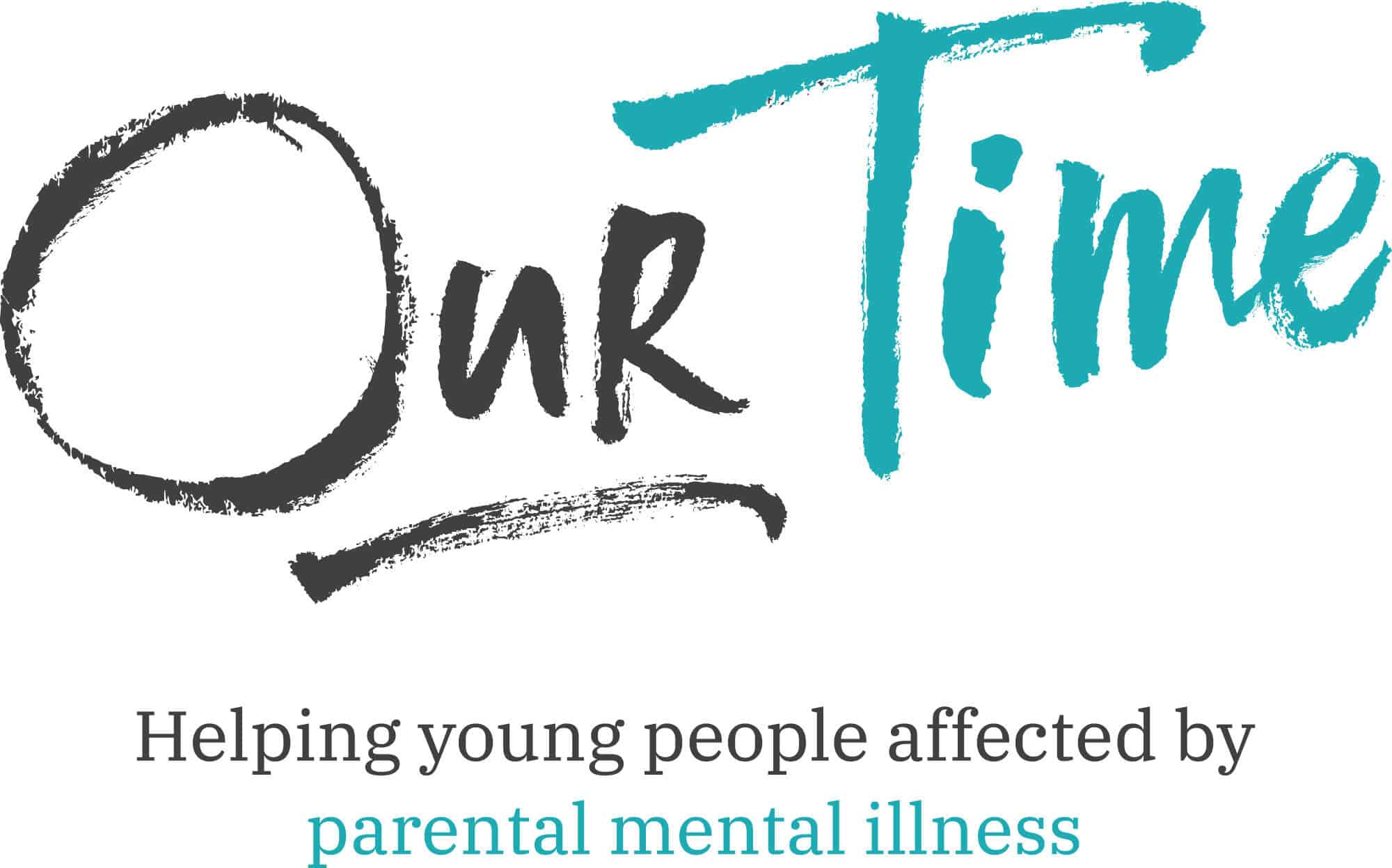
-
How You can Help Break Down Barriers for Deaf People with Zebra Access this May

-
Help People Struggling with Unplanned Pregnancy or Pregnancy Loss with Pregnancy Options Centre
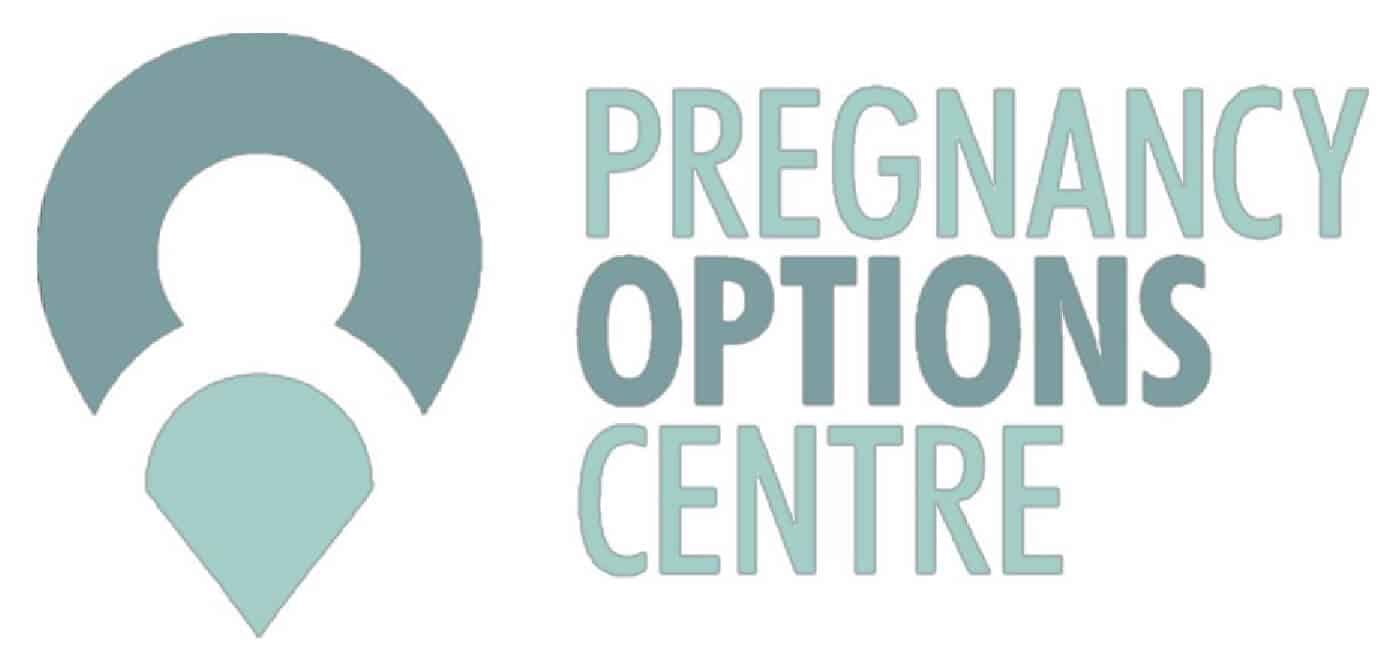
-
Types of Gambling Bonuses That Our Discount Hunters Will Love
-
Vote for SCRATCH in our April Charity Poll & Help Fight Poverty

-
Help Rescue and Rehome Cats and Kittens this April with Sunshine Cat Rescue

-
Support People Impacted by Autism this March with En-Fold

-
How Your Vote for GDA can Help Deaf And Hard Of Hearing People

-
Supporting people experiencing homelessness by voting for Justlife this March

-
Help Empower People aged 55 and Over by Voting for Age UK Bristol this February

-
The Importance of Insects to General Biodiversity: Why Vote for Buglife this February?

-
Support People Living with Aphasia This January by Voting for Say Aphasia

-
Support Adults with a Learning Disability and/or Autism by Voting for Grace Eyre this January

-
Vote for Amber and give young people a temporary home and a hope for a better, brighter future.

-
Vote for The Littlest Lives Rescue this December and Help Rescue and Rehome Rabbits in Need

-
Vote for Oakleaf to Help Provide Mental Health Support

-
Find Out How Your Vote for Sufra NW London can Help Tackle Food Poverty

-
How Your Vote for Tiny Paws MCR can Help Rodents and Rabbits In Need

-
What Your Vote for CLAPA can Do For People with Cleft Palates and their Families

-
How Your Vote for Pear Tree Farm Animal Sanctuary can Provide Refuge for Farm Animals In Need

-
How Your Vote For the Little Paws Ferret Rescue can Help Rescue & Rehome Ferrets

-
How Your Vote for Love Me Love My Mind Supports Positive Mental Health and Wellbeing
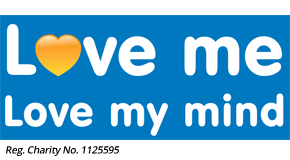
-
How Your Vote for The Brigstowe Project will support people living with HIV and other long-term conditions

-
How Your Vote for the Rabbit Welfare Association and Fund can Help Rabbits Live the Life They Deserve

-
How Your Vote for Brain Tumour Support can Help Provide Dedicated Support for People Affected by Brain Tumours

-
How Your Vote for British-Ukrainian Aid can Help People Suffering from War and Humanitarian Crisis

-
Vote for FareShare and Reduce Food Waste whilst Feeding People in Need

-
Vote For The Bath Preservation Trust in Discount Promo Codes August Charity Poll

-
Vote for Style Acre This July in the Charity Poll

-
Cast a Vote for Support Dogs This July in the DPC Poll

-
Vote for the Word Forest Organisation This July in the DPC Poll

-
Get To Know Aid Box Community and Vote for Them In the Charity Poll

-
Learn More About Operation Smile and Cast a Vote for Them This June
-
Cast A Vote for Husky Rescue Ireland in June's Charity Poll

-
Learn More About Let's Talk about Loss and Support Them in The Charity Poll

-
Vote for Magic Breakfast in the Discount Promo Codes Poll This May
-
Get To Know Bristol Women's Voice and Vote for Them in The May Charity Poll
-
Learn More about Ronald McDonald House Bristol and Vote for them in the April Poll
-
Get To Know Self Injury Support Charity And Vote for Them in The Charity Poll This April
-
Vote for Bike the UK for MS this April and help support the 130,000 people living with MS in the UK
-
Get to Know The Brain Charity And Cast a Vote to Support Those With Neurological Conditions This March
-
Get to Know Disability Challengers - Vote for a Charity Supporting Disabled Children this March

-
Support Womankind’s Mental Health Helpline With a Vote in the February Charity Poll
-
Vote For The Royal Hospital For Neuro-Disability in The February Charity Poll
-
Get To Know EACH Charity and Support Them in The February Charity Poll

-
Vote for CAMVET this January and Help Them Fund Essential Pet Hospital Equipment
-
Vote for Epilepsy Action This January and Help Improve the Lives of Those Affected By Epilepsy

-
Get to Know Oracle Cancer Trust and Vote For Them in the Charity Poll

-
Did You Know There Are Promo Codes At Online Casinos? Here Are Some Of The Most Attractive On The Market
-
5 Reasons Companies provide Promotional Offers
-
Vote For The Sussex Beacon in the Charity Poll and Help Support People Living With HIV

-
Vote for Bristol Mind in the December Charity Poll and Help them Support Those in Need

-
Vote for Lucy Air Ambulance for Children in the December Charity Poll

-
Cast Your Vote for Blythe House Hospicecare & Helen’s Trust This November

-
Get to Know OTR Below and Vote for Them in The November Poll

-
Find Out About Autism West Midlands and Vote for Them In the November Charity Poll

-
Show Your Support and Vote for Integrate UK This October

-
Cast Your Vote for The Link Visiting Scheme in October's Charity Poll

-
Vote For the British Liver Trust this October and Support Change in Liver Health
-
Vote for Girls Out Loud and Help them Guide Young Girls Towards a Brighter Future

-
Support Children with Disabilities and Additional needs by Voting for Brainwave
-
Help Raise Awareness By Casting Your Vote for Marmalade Trust this September

-
Real Budget-Friendly Tips for Your Next Holiday
-
Support deafPLUS in the Charity Poll and help them Create an Accessible World

-
Help Bristol and Wales Cat Rescue by a Vote this Month

-
Help Gloucestershire Rape and Sexual Abuse Center Provide Support those in need

-
Vote for Weston Hospicecare and Help Them Support People Suffering From Life-Limiting Illnesses

-
Help Solace Women’s Aid Support Survivors of Sexual Abuse and Vote in the Poll

-
Vote for We Hear You And Help Them Support Individuals With Life Threatening Conditions

-
Help Refugees Rebuild Their Lives With a Vote for Scottish Refugee Council

-
Show Your Support for Children With Life-Threatening Illnesses by Voting for Derian House Children's Hospice
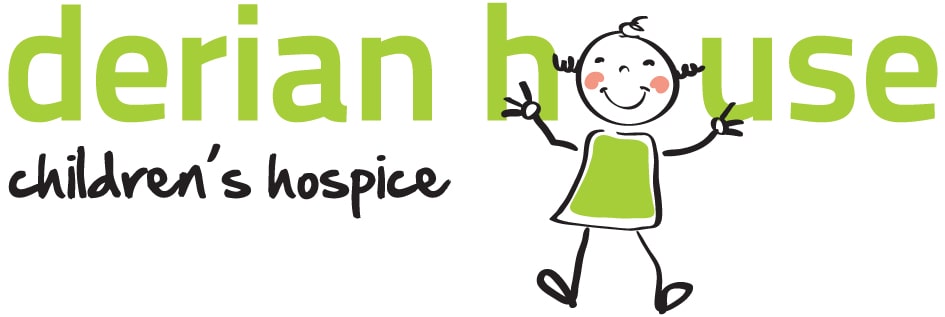
-
Support Vital Research With a Vote For ME Research UK

-
Cast Your Support For Sheffield Mind This May in Honour of Mental Health Awareness Week

-
Support the Rescue & Rehoming of Animals With a Vote for Margaret Green Animal Rescue This May

-
Support SPANA This April and Help Provide Vital Care to the Working Animals of the World

-
Show Your Support For Bristol Animal Rescue Centre This March

-
Show Your Support For Autism Berkshire This April in Honour of World Autism Awareness Day
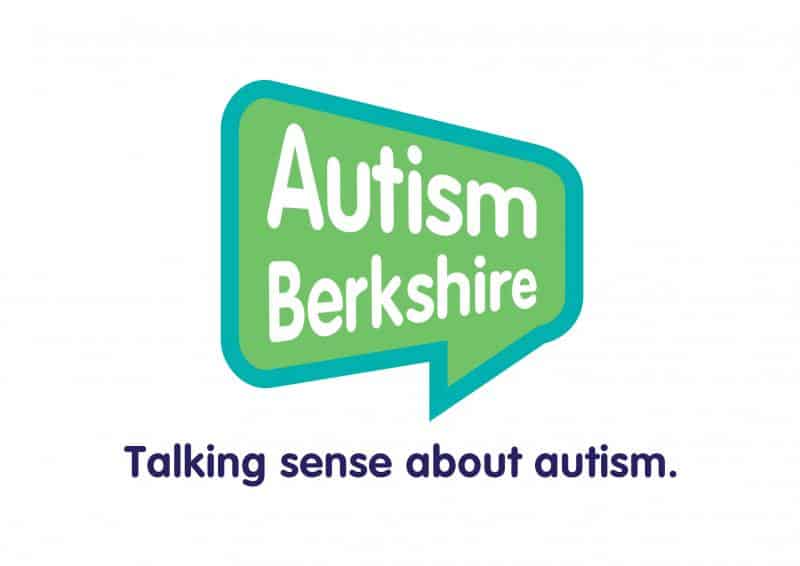
-
What Can I Eat If I Go Vegan?

-
Beginners Guide to Going Vegan Healthily

-
5 Easy Steps to Being a Healthy Vegan on a Budget
-
Support The Down’s Syndrome Association This March With a Vote in Our Charity Poll
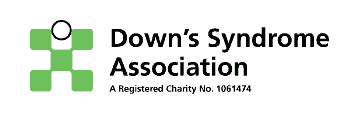
-
Show Your Support for Cotswolds Dogs and Cats Home This March & Help Support Sick and Neglected Animals

-
Help Us to Help Wiltshire’s Young People With a Vote for Youth Action Wiltshire in Our Charity Poll

-
Show Your Support for Children & Young People Living With Cancer by Voting for CLIC Sargent in February’s Charity Poll

-
Help Sussex Cancer Fund Provide the Very Best Care and Support to Cancer Patients This February

-
Show Your Support For DEBRA This February and Support Those Affected By Epidermolysis Bullosa

-
Vote For SARSAS This January In Our First Charity Poll of 2021!
-
Vote For AFK This January and Show Your Support For Disabled Children and Young People
-
Help FareShare Tackle Hunger & Food Waste This January with a Vote in Our Charity Poll
-
Cast Your Vote for Neuro Therapy Centre This December!
-
Vote for Citizens Advice Bournemouth, Christchurch & Poole in Our December Charity Poll
-
Show Your Support For Sick Children Throughout Sussex with a Vote For Rockinghorse This December
-
Support Bath’s Local Mental Health Charity This November with a Vote for Bath Mind
-
Support SiMBA This November with a Vote in Our Charity Poll
-
Support Kidscape This November in Honour of Anti-Bullying Week!
-
Vote for Lymphoma Out Loud This October and Help More People to #BeBodyBrave!
-
Help Once Upon a Smile Be There For Bereaved Children and Families This October
-
Vote for Kinergy This October and Help Provide Vital Support to Survivors of Sexual Abuse and Sexual Violence
-
Vote for the Children’s Air Ambulance This September in Our Charity Poll
-
Help Prevent Period Poverty and Stop the Stigma This September with a Vote for Irise International
-
Help Support Those Affected by Lupus This September with a Vote for LUPUS UK in Our Charity Poll
-
Cast Your Vote for Seashell Trust This August & Help Provide Care and Support to Children and Young People with Disabilities and Complex Medical Conditions
-
Give Children the Best Start in Life by Supporting Families in Need with a Vote for Home-Start Glasgow South This August
-
Help Action Duchenne Continue Their Vital Work This August by Voting in Our Charity Poll
-
Support The Helen Arkell Dyslexia Charity This Month with a Vote in Our July Charity Poll!
-
Cast Your Vote for Devon Air Ambulance This July and Help Bring Life Saving Treatment to Patients Who Need It
-
Support Horses, Ponies and Donkeys in Need by Voting for HorseWorld in This Month’s Poll
-
Help Raise Money for Bristol City Centre Hospitals with a Vote for Above & Beyond in Our June Charity Poll
-
Support Education for All With a Vote for Africa Educational Trust in Our Charity Poll for June 2020
-
Help MindOut Continue Providing Vital Mental Health Services to LGBTQ Communties by Voting For Them This June
-
Help Educate & Celebrate Work Towards a Welcoming Society for Everyone with a Vote for Them in This May’s Charity Poll
-
Raise Awareness and Make a Difference to Those Affected by Bullying This May with a Vote for BulliesOut!
-
Help Change the Lives of Disabled Children and Young People Through Play with a Vote for Challengers This May

-
Tips for Home Schooling During the Coronavirus Crisis
-
Show Your Support For People Living with Multiple Sclerosis & Vote for the MS Trust This April
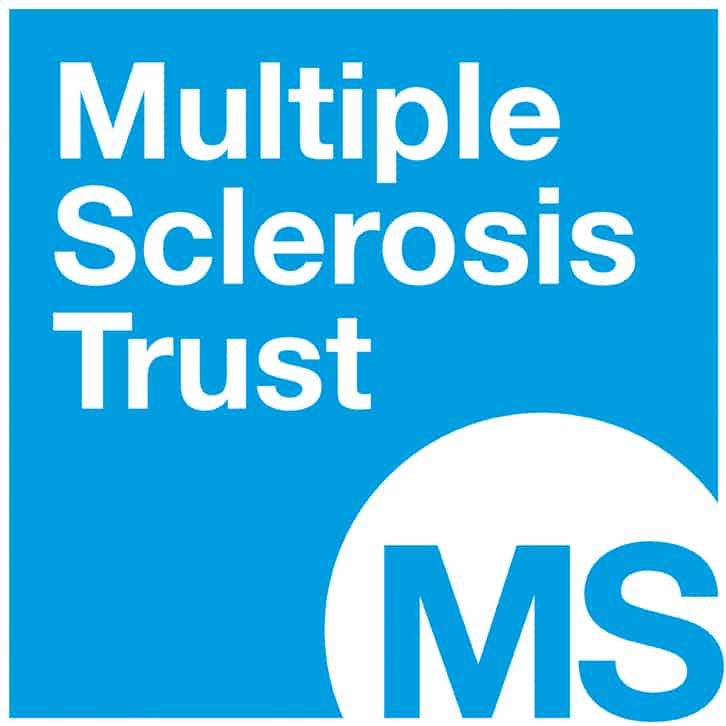
-
Vote for Solving Kids’ Cancer in This April’s Charity Poll and Help Children Affected by Neuroblastoma

-
Vote for Jessie May and Help Support Terminally Ill Children and Their Families This April

-
How To Save Money Shopping Online with Discount Promo Codes

-
Go Green This Valentine’s Day with Sustainable Gift Ideas
-
7 Pet Products You Didn’t Know you Needed
-
Top Tips on Cutting the Cost of Home Appliances & Technology

-
Cutting Back for Christmas: How to Reduce Your Spending and Start Saving
-
Spend Less on Spooks: How to Save on Halloween Fun for All the Family
-
Top 10 Shops With the Best Loyalty Card Programmes

-
What Are the Latest Knitwear Trends?
-
Tattoo & Piercing Aftercare: The Best Creams For New Ink that Don’t Cost a Bomb
-
University Essentials: What to Put in Your Student Starter Kit
-
Which is the Cheapest Supermarket?
-
Top 10 Books For Your Summer Reading List
-
Cycle Your Way Through Summer with Our Super Savings
-
From Picnics to BBQs: The Vegan Guide to Surviving Summer

-
Sunscreen Essentials: What Protection is Best For You?
-
Gardeners Guide: How to Save on Your Summer Garden

-
How to Complete your Bucket List On a Budget

-
Where Can I Find Savings on Green Pet Products?
-
How to Find Online Savings for All Your Summer Footwear
-
7 Secret Tips for School Holiday Savings Online

-
Save on Your Own Summer of Sport
-
How to Get Money Off your Supermarket Delivery

-
How to Find Great Value Body Positive Fashion
-
How to Make a Start on Your De-Cluttering and Spring Cleaning
-
How to Make the Most of Your Budget in 2019
-
Why You Should Start Planning Your Summer Holiday Early
-
Your Checklist to All the Ways You Can Save Money as a Student
-
What Do You Get a Fitness Enthusiast for Christmas?
-
Bring Comfort & Joy to Your Home with these Must Have Christmas Decorations
-
Festive to Fiesta, Where to Go Away for Your Christmas Break
-
Is It Too Early to Start Saving for Christmas?
-
4 Things to Look Forward to in the Autumn
-
Best UK Day Trips to Soak Up the Last of the Summer
-
Compare the Prices of Back to School Uniform Essentials
-
5 Ways to Stay Engaged Online (on a Discount)
-
Hot Summer Essentials You Can’t Be Without Right Now
-
How To Add Stunning Feature Furniture To Your Living Room
-
Travel Insurance Tips for Picking the Right Policy
-
How Should You Prepare for Your First Family Camping Trip?
-
5 Top Summer Accessory Trends for 2018
-
Top Ferry Holiday Destinations from the UK
-
This Year’s Essential Festival Fashion
-
How Eco Friendly Are Your Baby Products?
-
How to Pick the Best Dog-Friendly Holiday
-
4 Summer Coats to Cover Every Occasion
-
The Lazy Person’s Guide to Spring Cleaning
-
8 Small Household Items That Will Change Your Life for the Better
-
Space Saving Solutions for That Small Kids’ Bedroom
-
The Best Books for Your Middle Grade Reader
-
What We REALLY Want for Mother’s Day
-
Get Your Garden Looking Lovely on the Cheap
-
Do You Follow the Fashion Brands Getting Facebook Right?
-
How to Budget When Booking Your Family Holiday
-
4 Ways to Save Money AFTER Moving Home
-
Finding Cheap Skincare That Works for You
-
Interesting Things You Didn't know About Black Friday
-
What to Pack in Your Great British Picnic
-
Is English Wine Any Good?
-
5 Facts You Might Not Know About Rose Wine
-
Father’s Day Gifts with a Difference
-
Alternative London Sightseeing Ideas
-
How to Dress for the British Summertime
-
How to Build Your Dream Interior on a Budget
-
How to Find Wedding Presents Online
-
How to Get the Most from Your Supermarket Discount Codes
-
Explore Hidden Corners of England this Spring
-
Why Gift Experiences Make the Perfect Mother’s Day Gift
-
What Can I Buy My Stylish Mum This Mother’s Day?
-
How to Get a Good Night’s Sleep
-
How Can I Get My Children to Read More?
-
What Should I Get My New Boyfriend for Valentine’s Day?
-
How Can I Order Beautiful Bouquets Online?
-
The Best Costume Ideas for World Book Day
-
5 of The Best Easy Diet Hacks For Weight Loss
-
What is the Best Time to Book the Best Value Holiday?
-
Are Subscription Boxes Worth It?
-
What Gifts Do I Buy the New Girl in My Life for Valentine's Day?
-
3 Simple Recipe Ideas for Warming Winter Comfort Food
-
Book a Luxury Spring Break and Reward Your Winter Sacrifice
-
Romantic Recipes Ideas for a Sweet Valentine’s at Home
-
Organising Your 2017 in 5 Steps
-
How to Survive the Post-Christmas Lull
-
4 Last Minute Gifts for TV and Film Lovers
-
4 Christmas Rituals You Can Enjoy
-
5 Things Parents REALLY Want for Christmas
-
Comparing Christmas Dinner Prices for 2016
-
5 Bookish Gifts for the Reader in Your Life
-
Buying the Perfect Christmas Present For Her
-
6 Things We Secretly Love About Winter
-
The Best Christmas Toys for 2016
-
How to Dress Your Dog for Christmas
-
5 Survival Tactics for Your Christmas Shopping
-
The Top 4 Gadget Gifts for Christmas
-
What’s in Store With Currys This Christmas?
-
The How to Shop for the Party Season Guide- For Men
-
4 Alternative Advent Calendars for Adults
-
5 Cyber Monday Deals You Should Use
-
How to Find a More Stylish Christmas Jumper
-
Why You Should Shop Online for Black Friday
-
The Best Early Bird Cyber Monday Fashion Deals
-
5 Things We Want to Avoid when Christmas Shopping
-
How To Improve Your Gut Health
-
7 Things Every Organised Christmas Shopper Secretly Does
-
Save Money with Black Friday Technology Deals
-
Get Excited About Cyber Monday Homeware Deals
-
Tackling Budget Problems in 4 Easy Steps
-
Get Your Black Friday Travel Deals Today
-
The Top Gear Team are Reunited on The Grand Tour
-
Start Planning Your Cyber Monday Toy Savings
-
Becoming Your Own Apprentice for Lord Sugar
-
The Do’s and Don’ts of Supermarket Shopping
-
How You Can Support Our Chosen Charities for November
-
7 Reasons to Enjoy National Pomegranate Month
-
Get Into Gear for National Novel Writing Month
-
Top 10 Money-Saving Websites
-
How to Rise Up and Prevent Bullying
-
7 Reasons Why Having a Cat is the Best
-
4 Top Celeb Autumn Styles to Try Out This Week
-
6 Signs That You're Not Getting Enough Vitamin D
-
Why London Zoo is Worth a Visit
-
Handheld Scanners Could Save Boxers’ Lives
-
Top Tips for Beginner Bakers
-
-
Long Live Boaty McBoatface!
-
How to Avoid Halloween This Year?
-
Marmite – We Clearly Can’t Cope Without It
-
Send in the (Happy) Clowns!
-
Celebrate the London Film Festival With Some of the Best British Films of the Last 20 Years
-
Are Holiday Prescriptions on the Horizon?
-
7 True Crime Book Recommendations
-
3 Ways to Celebrate World Animal Day
-
Celebrate National Vegetarian Day by Making Some Meaty Changes
-
Some Surprising Coffee Facts for International Coffee Day
-
New Bridget Jones Success Continues Rich Tradition of Beloved Literary Heroines
-
Shortest Stints in History to Rival Sam Allardyce
-
Celebrating UK Holidays on World Tourism Day
-
Do You Need a Bedtime Digital Detox?
-
How to Get the Best of Mary Berry on Your Bookshelf
-
The Best Dramatic Films to Bond Over
-
The Many Benefits of Going Car Free
-
How to Get the Best From Your Fitness Tracker
-
Save on Online Optical Purchases During National Eye Health Week
-
Stock Up Your Pirate Goodies on Talk Like a Pirate Day
-
Things to Do This Stormy Weekend
-
New Amazon Echo Device Hopes to Revolutionise Homes
-
New Study Suggests E-Cigarettes Are Helping More Smokers Quit
-
3 Ways to Celebrate Roald Dahl Day
-
Back to Basics for National Cupcake Week
-
Re-Discover Your Favourite Toy on National Teddy Bear Day
-
Bedtime Stories for International Literacy Day
-
Exercise Prescriptions for National Fitness Day
-
Celebrate Read a Book Day with Reluctant Reader Recommendations
-
Cutting Down the Rubbish for Zero Waste Week
-
Celebrate International Bacon Day with the Very Best Ways to Enjoy Bacon
-
New Research Highlights Increasing Tick Problem in UK
-
Go Back to Hogwarts with the Ultimate Harry Potter Fan Buys
-
Amazon Dash Introduces Push Button Tech for Ordering Home Essentials
-
Ideas for Autumn Mini Breaks
-
5 Kitchen Appliances to Replace Your Deep Fat Fryer With
-
6 Things Every New Dog Owner Needs to Know This National Dog Day
-
Get Ready for Organic September
-
Things to Do in the UK This August Bank Holiday Weekend
-
Back to School Essentials Check List
-
How to Beat the Post-Olympic Blues
-
How to Avoid Higher Rail Fares
-
5 Must-See Adaptations of Children’s Classics
-
Some Expert Baking Tips to Celebrate Announcement of New Bake Off Contestants
-
Think Delivery Errors Are Freebies? Think Again
-
5 Classic British Game Shows That We Need Back
-
Easy and Delicious Ways to Enjoy Your Courgettes
-
How to Get Back Into Swimming
-
How to Keep Track of Your Calorie Intake
-
There’s Only One Way to Celebrate National Book Lovers Day
-
Scottish Holiday Hotspots to Visit Once You’ve Been to the Edinburgh Festival
-
To Floss or Not to Floss?
-
Amazon Enters the Online Grocery Market
-
5 80s Movies That Need a Gender Swap Remake
-
It’s National Watermelon Day so Let’s Celebrate its Many Benefits and Uses
-
How to Include 1 Hour of Exercise into Your Daily Routine
-
5 Great British Underdog Stories
-
How to Avoid Burnout Through Work Boredom
-
Explore New Trends on National Lipstick Day
-
Celebrate Classic Children’s Books on Beatrix Potter’s 150th Birthday
-
Does Wearing a Suit Make You More Successful at Work?
-
Celebrate Sustainable Seafood During National Fishing Month
-
How to Get Back Into Cycling
-
5 Underappreciated Inventions We Can’t Live Without
-
Star Trek Joins Long List of Upcoming TV Reboots
-
A Parent’s Survival Guide for the Summer Holidays
-
5 Unlikely Sports for the Olympics
-
How to Spot Future Collectibles
-
How Brits Cope on the Hottest Day of the Year
-
New #MyBeautyMySay Campaign Encourages Women to Celebrate Self-Image on Their Terms
-
Women Over 40 Are Now Having More Babies Than Those Under 20
-
There’s More to Ayrshire than The Open
-
Can Artificial Intelligence Create the Perfect Drink?
-
Larry the Cat Will Still Have a Home in Downing Street
-
Can Wimbledon Victories Inspire Our Olympic Stars?
-
Enough Pokemon Already: Other Noughties Trends We’d Like to See Revived Instead
-
It’s Cow Appreciation Day so let’s celebrate all things bovine
-
Distance Learning Grows as Universities Plan to Offer Full Degrees Online
-
3 Ways to Find Your Perfect Bra Size Online
-
Save on summer camping accessories with discount vouchers from Millets, Cotswold Outdoor and Springfield Camping
-
The Perfect Promo Codes for Independence Day
-
Soften up with our summer skincare promo codes from Boots, Menage Skincare and Elizabeth Arden
-
Get your summer fitness gear sorted with the latest discount codes from Surfdome, Blacks and Boohoo
-
Make the most of the summer with some great garden toy savings
-
Outdoor dining deals with promo codes from Tesco, Debenhams and Design 55
-
Can We Tempt You With a European City Break?
-
Save this International Sunglasses Day with our discount codes from Sunglasses Shop, Sunglasses2u and Lensway
-
Pamper your pooch for National Bring Your Dog to Work Day
-
Get Inspired by Our National School Sports Week Savings
-
The best value festival fashion with promo codes from Boohoo, Peacocks and Joules
-
How to Stay Cool in the Hot Weather
-
Enjoy the best discounted swimwear with promo codes from Surfdome, Swimwear365 and Sweatband
-
Travel Light With Our Holiday Accessories Savings
-
Enjoy Euro 2016 In Style With TOFFS Promo Codes, Currys Discount Codes & Sainsbury’s Promotional Codes
-
The latest summer haircare savings with discount codes from Grow Gorgeous, Sally Express and The Body Shop
-
Do your bit for the environment with our green promo codes
-
Save with Child Safety Week discount codes from Boots, Baby & Co and Kiddicare
-
How to Make Summer Pudding
-
Days Out in London For Less
-
Save on your pet travel needs with discount codes from Monster Pet Supplies, Muddy Paws and Zooplus.co.uk
-
Prepare for National BBQ Week with promo codes from Argos, B&Q and The Range
-
Summer Cookbooks to Get Your Mouth Watering
-
Summer Style for Curvier Figures
-
Celebrate National Vegetarian Week with our online savings
-
The very best in summer make-up savings
-
Book your dream adventure holiday with promo codes from Family Adventure Company, SNCB B-Europe and Air New Zealand
-
Save on your summer accessories with discount codes from Joules, Links of London and My Bag
-
3 Ways to Improve Your Lunchtime Sandwich
-
Save on your camping accessories with promo codes from Tesco, Outdoor Gear and Field and Trek
-
Stay protected in Sun Awareness Week with discount codes from Superdrug, The Body Shop and Fragrance Direct
-
Use promo codes from Foyles for Books, Oxfam Online Shop and Scholastic to save during National Share a Story Month
-
3 Wine Savings for Summer Celebrations
-
Choose your UK family holiday with promo codes from Bluestone Wales, Haven Holidays and YHA England and Wales
-
Stock up on supplies with our National Stationery Week savings
-
Save on your summer reading with promo codes from The Book People, Waterstones and Hive Books
-
Gear up for the Tour de Yorkshire with discount codes from Evans Cycles, Pro Bike Kit and Chain Reaction Cycles
-
How to Make a Simple Summer Smoothie
-
Brighten up your outdoor space with the latest promo codes from Homebase, Laura Ashley and RSPB Shop
-
Get your feet into some men’s summer footwear bargains thanks to discount codes from Hurleys, Cloggs and Boohoo
-
Celebrate St. George’s Day with a short break in the English countryside
-
6 Summer Coats for £25 or Less
-
Use discount codes from The Works, Great Little Breaks and Theatre Tickets Direct to re-discover Shakespeare
-
Save on the best value outdoor toys with promo codes from Duplay, Toys R Us and All Round Fun
-
3 Easy Marinades to Make at Home
-
3 Steps to a Healthier Lifestyle
-
Bag yourself a bargain bridesmaid dress with discount codes from BHS, Debenhams and Coast
-
Treat your dog or puppy with promo codes from Bob and Lush, Dogalogue and Muddy Paws
-
How to Save on Your Study Resources
-
Discount codes from Woodhouse Clothing, Men Look and Accent Clothing to save you money on SS16 designer menswear
-
3 Ways to Keep the Kids Entertained in the School Holidays
-
Use our discount codes to find the perfect wedding guest dress
-
Save with our National Bed Month promo codes from Dunelm, House of Fraser and BHS
-
Save on your new spring wardrobe with discount codes from Matalan, Joy and Baukjen
-
How to Make Easter Decorations
-
How to Make Easy Easter Treats
-
Discount codes from Thorntons, Godiva Chocolates and Tesco to help you save on luxury Easter eggs
-
Promo codes to help you stop smoking this National No Smoking Day
-
The latest spring gardening savings with promo codes from Homebase, Tesco and Harrod Horticultural
-
Save on your last minute Mother’s Day gift experience
-
Mother’s Day bouquet promo codes from Flowercard, Waitrose and Bloom and Wild
-
10 Vital Camping Tips for 2025
-
4 Easy Soups You Can Make at Home
-
Use promo codes from Sports Direct, Ripped Knees and Swim Shop to get sporty this spring
-
Save on your holiday extras with promo codes from Avis, Liverpool Airport Car Parking and Alpha Travel Insurance
-
How to Make Real Gravy
-
Discount codes to help you prepare for spring cleaning
-
Promo codes for last minute Valentine's gifts
-
How to Make the Best Homemade Fudge
-
How to Make the Best Apple Crumble
-
How to achieve your 2016 goals with promo codes for Slendertone, Tesco and Air New Zealand
-
Promo codes for Tesco, Waitrose and Sainsbury’s: How to stick to your diet.
-
How to eliminate that stubborn fat
-
Discount codes making Valentine’s gifts for her easy at The Fragrance Shop, Miss Selfridge and Red Letter Days
-
Promo codes for Virgin Experience Days, Get The Label and I Want One Of Those assist you on Valentine’s gifts for him
-
Save on your winter walking accessories with promo codes from Millets, Cotswold Outdoor and Great Outdoors Superstore
-
Use discount codes from I Want Wallpaper, FADS and House of Fraser to save on your living room makeover
-
The Best Rural Escapes for 2016
-
How to Get Started Knitting
-
Save on your winter car accessories with promo codes from Halfords, Bang Good and Autosessive
-
How to Care for Your Garden in the Cold Weather
-
How to Make Chewy Chocolate Chip Cookies
-
Stick to those New Year’s resolutions with our ROK Electronic Cigarettes, Graze and Halfords discount codes
-
Save up to 72% off Airport Car Parking with our Looking4Parking Promo Code Widget
-
How to Make Your Own Hair Mask
-
Let our House of Fraser, Dorothy Perkins and Blacks discount codes save you even more in the winter accessories sales
-
How to Make Granola Bars
-
How Sainsburys, Ocado and Waitrose discount codes can help you budget this January
-
How promo codes from Attractiontix, Asda Direct and Little Bird can get you out and about this January
-
Discount promo codes for Miss Selfridge, Boohoo and Phase Eight to help you gain fashion gems
-
Use discount codes for Superdry, GAP and Fashion World for the latest trends
-
Trespass, Sports Direct and ActivInstinct promo codes save you money on sportswear
-
Use Fitness First, Exante Diet and Gym World promo codes to counter your festive celebrations
-
Get sorted for last minute gifts with promo codes from Joules, The Book People and Debenhams
-
Save on exquisite homeware gifts with discount codes from Rose and Grey, Cargo and Soak and Sleep
-
Christmas party dress bargains with discount codes from Miss Foxy, Debenhams and Coast
-
Christmas fragrance savings with discount codes from Boots, Galaxy Perfume and Perfume Shopping
-
Save on adult colouring books with promo codes from The Works, The Book People and Waterstones
-
How to plan your Christmas party with promo codes from House of Fraser, Party Delights and Tesco
-
How to make the perfect winter stew with promo codes from Campbells Meat, Tesco and Waitrose
-
Make DIY savings this National Maintenance Week with discount codes from Homebase, Maxwells DIY and B&Q
-
Treat yourself to a great kitchen appliance with promo codes from Argos, Appliance City and Electrical Discount UK
-
Celebrate National Novel Writing Month with discount codes from The Works, Debenhams Plus and Waterstones
-
Start saving on your Christmas toy shopping with promo codes from Smyths Toys, Bang Good and Build-a-Bear
-
The latest winter theatre savings with discount codes from LOVE Theatre, Theatre People and Tickettree.com
-
It's National Jigsaw Day so save with discount codes from All Jigsaw Puzzles, Smyths Toys and My Photo Puzzle
-
Celebrate World Vegan Day with promo codes from The Book People, Sainsburys and Waitrose
-
Buy your family the best winter accessories with discount codes from In The Style, Joules and Gap
-
The latest seasonal knitwear savings with discount codes from Boohoo, Daxon and AX Paris
-
Book your autumnal weekend break with promo codes from Superbreak, Lastminute.com and MacDonald Hotels
-
Face your fears with promo codes from Red Letter Days, Virgin Experience Days and DoSomethingDifferent.com
-
Winter skincare bargains for men and women with discount codes from Mankind, Beauty Expert and My Vitamins
-
Save on your autumnal haircare with discount codes from Rush Hair, Superdrug and Cult Beauty
-
Get your new sofa before Christmas with promo codes from Laura Ashley, Habitat and Argos
-
Save on half term activities with promo codes from Play and Stay, Discount London and LondonTheatreDirect.com
-
Indulge your sweet tooth during National Chocolate Week with discount codes from Chocolate Trading Company, My M&Ms and Activity Superstore
-
Keep your garden in order this autumn with promo codes from Greenfingers, The Range and Unwins Seeds and Plants
-
Give your kitchen a touch of GBBO magic with discount codes from Argos, Captain Cooks and Debenhams
-
How to save on your kids' winter coats with promo codes from Boden, House of Fraser and TK Maxx
-
Get your Halloween party off to a ghoulish start with discount codes from Party Packs, Matalan and Light in the Box
-
Find the perfect winter nightwear with promo codes from La Redoute, Simply Be and Debenhams
-
How to start using e-cigarettes with discount codes from B and M Electronic Cigarettes, Electric Tobacconist and E Cigarette Direct
-
How to find household appliance savings online with promo codes from Currys, Captain Cooks and Tesco
-
Order those winning winter boots with discount codes from Kurt Geiger, Fife Country and Bells Shoes
-
Celebrate British Food Fortnight with promo codes from Campbells Meat, Pong Cheese and Hello Fresh
-
How to find the perfect winter coat with discount codes from Miss Selfridge, Gap and Banana Republic
-
Save on rugby items and adventures with promo codes from Sports Shoes, Crew Clothing and Little Bird
-
How to save on essential eyewear and contact lenses with discount codes from Lensway, Specky Four Eyes and Vision Direct
-
Enjoy National Cupcake Week with promo codes from Argos, Leekes and House of Fraser
-
How to save on brand new AW15 makeup trends with discount codes from Unineed, Boots and Debenhams
-
Start your university life by saving with discount codes from Laptops Direct, Soak and Sleep and Sainsburys
-
Celebrate International Literacy Day with promo codes from Red House, The Works and Waterstones
-
Start a new health and well-being regime with discount codes from Boots, Vitamin Planet and Graze
-
Discounts on premium kidswear with promo codes from Alex and Alexa, House of Fraser and Joules
-
Last minute theme park and attraction savings with promo codes from Alton Towers Resort, Discount London and Little Bird
-
How to save on essential maternity wear with discount codes from Mothercare, Vertbaudet and Isabella Oliver
-
The best current online designer deals with promo codes from Debenhams, Toni & Guy and Sunglasses2U
-
Embrace a day trip with Countrywide Paintball promo codes, Alton Towers discount codes and Wahanda promotional codes
-
The key to a healthy lifestyle using discount codes from Tesco, Sainsburys, Ocado, Graze and Waitrose.
-
Summer spa break deals with promo codes from Wahanda, SpaBreaks and Spa Finder
-
Last minute summer wedding outfit deals with discount codes from Coast, BHS and Just Last Season
-
Get your summer outfit with New Look discount codes, Missguided discount codes and Dorothy Perkins discount codes
